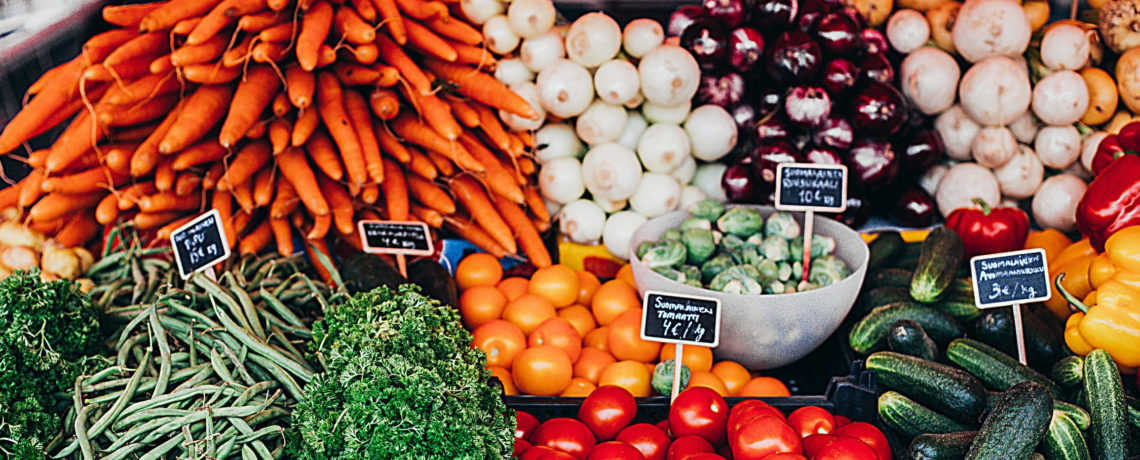If we want to overcome the big crisis of our era, we have to start by making our diet and farming more sustainable. What’s the big crisis you ask? Ultra-processed food and intensive agriculture; it’s damaging us and the world. To attain this objective, governments can put more stress on big agribusiness by means of reformist legislation, and farmers can embrace innovative and invigorating methods. What can you do? Give your support to the farmers in your region. If there are allotments in the town or city in which you live, you can probably see local farmers who’ll gladly provide fresh organic products to your home. Be part of it! Show your solidarity with them by consuming their products.
This month’s book, Food Fix: How to Save Our Health, Our Economy, Our Communities, and Our Planet—One Bite at a Time by Dr. Mark Hyman, encourages us all to join the movement to save our planet and transform the food system. Dr. Hyman mentions 6 ways to do this:
- Eat at restaurants that serve organic, farm-to-table, and/or regenerative food.
- Look for food labels that identify sustainable, humane food sources.
- Support innovation and policies for food and agricultural practices that help to reverse climate change.
- Start and support businesses that draw down carbon through agroforestry, silvopasture, holistic grazing, and composting operations.
- Reduce your own food waste.
- Start a compost pile.
While these are all good points, what we’re going to focus on in this blog is how to reduce our food waste at home. Did you know on average people waste about 25% of the food they buy? Yikes! This translates to a household of 4 roughly throwing away $1,350 to $2,400 per year in food waste. Not only are we wasting food, but money as well. We have to find a way to stop this! So what can we do? It starts at home by learning how to cook using the food you have and grocery shopping with meal planning in mind to save money and food waste.
First off, avoid buying too much food at once. Go to the grocery store or farmer’s market with a plan! It isn’t a bargain after all if you overbuy perishable items you never get the chance to eat! Learn how to store your food properly in addition to not overbuying. Research how to store the fruits, vegetables, and herbs you’ve purchased properly so they don’t spoil quickly. Store fresh produce like carrots and celery by cutting them into sticks and storing in an airtight glass container with a bit of water in the bottom. Quick and healthy snacks that stay fresher longer reduce food waste and improve your health too!
Do you have a plentiful garden? Awesome! Growing your own fruits and vegetables is not only rewarding but also great for gut health. At some point in your growing season, there will be an abundance that you just simply cannot consume all on your own. In this case, share with friends, give to a food pantry, or freeze vegetables to use at a later date by blanching. Turn your excess into jams or can, preserve, or ferment produce to store away for the winter months. Think creatively with what you have so food waste doesn’t happen. If you have lots of herbs and greens, make a pesto! Too many cucumbers? Make some pickles! If you have produce that is starting to turn, use what you can by turning the old into something new like a sauce or vinegar. There are so many creative ways to use up your garden so nothing goes to waste!
Last but not least, meal plan so you know exactly what you’ll be making for the upcoming week before you ever step foot in the grocery store. Only buy what you need for the week, and leave the rest at the store. It will be there next time! Simply reduce waste by shopping in small trips divided up throughout the week, versus taking one big monthly trip. Buy fresh ingredients and have a plan for using them. If you have leftovers, turn them into a brand new dish for lunch the next day by adding fresh herbs or tasty condiments to give it a zip!
There are so many ways to prevent food waste, these are just a few suggestions. What else can you come up with at home? Think like a chef in how to use every perishable item smartly and uniquely in healthy dishes when cooking at home. Learn how to be creative with what you have to save money and food waste. Change starts in your kitchen!





